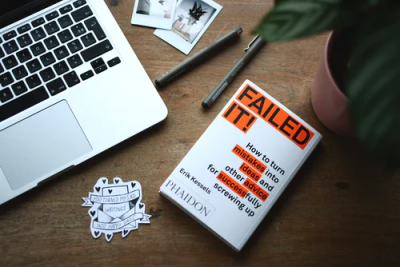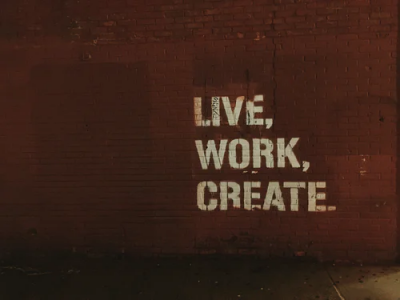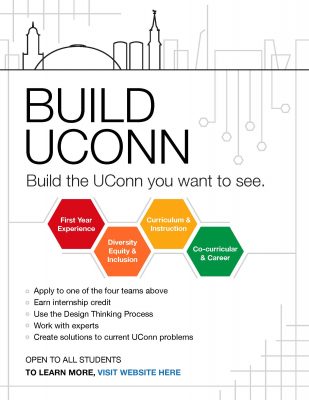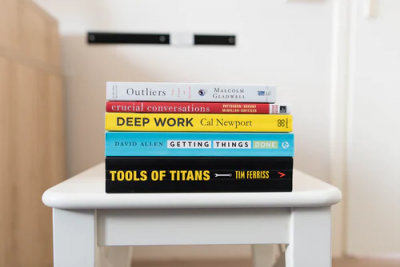There has been a focus in recent years on the feats of tech entrepreneurs such as Elon Musk and Mark Zuckerberg, claiming that if you want to be a wildly successful entrepreneur, you need to build a tech company. It is true that high-growth, high-risk startups have made a disproportionate impact over the past 15 or so years. The same goes for the return on venture money these entrepreneurs took on to build and scale their companies. However, tech startups represent only one type of business model, and historically speaking most entrepreneurship in this country has been of the traditional kind: lone business owners building their businesses, every day, in what would become legacy brands. It wasn’t called entrepreneurship back then, but simply making a living.
As we’ve noted in previous articles, we may be entering a period in which you’re going to have to start your own business to survive. So, before you rush headfirst into a business model that is not ideal, you should understand what different business models look like. There are many factors one must take into consideration when they’re looking to build a company, and self-awareness and honesty are key before embarking on this difficult but ultimately fulfilling path. If you are not building a business in order to solve someone else’s problems and make money by offering value, don’t start one. Additionally, if your intention is something short of solving problems to make a living for yourself, seriously reconsider if you want to be an entrepreneur.
OPM: Other People's Money
Taking Other People’s Money can be the rocket fuel for your endeavor aka startup or can be a curse if you and your investors’ interests are not aligned. Putting aside public markets, taking private money and venture money can raise your business to the next level. This is the standard model these days in VC, but while things are changing, know that you’re going to have to give up a lot of your business for the ‘privilege’ to take an investor’s money. Furthermore, you’re going to have to be held accountable to them, they will want regular reports, and will most likely start telling you what to do with your business. This article highlights the fact that “fewer than one per cent of all companies in the US are venture funded, and once you take other people’s money in exchange for equity in your company, the clock is ticking. They want their money back, plus a multiple of 3x to 10x, so your company will either need to ‘go public’ through an IPO or be sold in a trade sale.”
There are entrepreneurs who bootstrap and go for as long as they can without taking outside money; for some that is a good plan until they make the decision to take investor money. If there is one difference between a tech entrepreneur and a regular business owner, it is the decision to take venture money. An early stage startup’s success is based on scale, and getting sizable market share, so they need to burn through money to do so. While they need to grow, traditional businesses can grow at a stable rate, and start to make a consistent profit.
What problems to solve
Not everyone wants to solve some world pressing problem or disrupt an entire market. If you do, more power to you, but be aware it’s going to be a lot of work. Some people are driven to change the world and want to use technology to do so. They believe their destiny is intertwined with building a revolutionary startup. If you’re going to go big and want to make sure you raise a lot of money, find the biggest market to address.
There are others who want to solve more local problems, or want to build a business helping other businesses deal with tangible problems such as communications, strategy, etc. It’s important to work backwards and figure out who your customers are, and what is the problem that your business is going to solve. Some problems can be solved with an agency model, some need a SaaS model, and some can use a consultancy, but these are things you need to consider before you begin.
The risk factors
It’s not that people on paper don’t understand being an entrepreneur is a risky endeavor. And of course, the flip side is that there is a risk in not taking a chance in life if you really want to launch your own business. Simply put, if you launch a high-risk high growth endeavor such as a startup your chances of failure are higher, and certainly higher than if you launched a cash flow business that quickly turns a profit.
The thing about risk is that many people look only at the upside, on all the things that could go right. But you need to approach the situation thinking about what could go wrong, as most things will be harder than you expect. With startup risk, however, there is no upside at looking at the downside. This is how VCs view risk, as they’re banking on 1 ‘knock it out of the park’ winner out of a portfolio of 20 companies. It’s like a rocket ship: its fuel propels it to the atmosphere and space, and there is the very real risk that it could blow up on the way there. No wonder it’s called rocket ship growth!
Camels on the horizon
Since the pandemic started there has been a shift in the tech community regarding the growth of startups. Yes, you have your Zooms and TikToks of the world, but these are outliers. Right now, the idea of unicorns, billion-dollar valuation startups are not on the horizon. As more bad news comes out surrounding the economy and many companies continue to go under, a new model is emerging. That is of the camel, a startup that can go long periods of time without outside money, and is built for profit, almost like a real business.
“In today’s world, unicorns represent more than a valuation. Rather, they represent a philosophy, an ethos and a process of building startups. When being a unicorn is the objective, very rapid growth is the method. The tools are abundant venture capital, a deep and ready talent pool and a supportive startup ecosystem. This approach has worked well in Silicon Valley for some time. But in the wake of failed IPOs, the pushback against tech models and the range of social ills plaguing the Valley, the approach is losing its luster.”
Because of COVID-19, and for the first time in at least 10 years, we are facing an economic downturn. For many in the tech industry this is their first time dealing with such a situation. Nonetheless, this might be the right time, as many successful companies were built during economic downturns, and these new hybrid models may be the way forward.
Know thyself
In the end, after a long day of work, when you put your head on your pillow you must ask yourself if you are on your mission. You need to ask yourself and look to visualize what your future will look like. Will it be as a solo entrepreneur where freedom is a priority, or will you run a team and build a culture around your idea? Ultimately, these things will change, as you learn from your mistakes, grow and develop. As this article states on understanding yourself, “as an entrepreneur, you will have no place and no one to hide behind. Knowledge of yourself is the key to confidence, and confidence builds leadership. Building a new business requires good leadership to develop the market, attract customers, motivate the team and conquer the unknowns.”
Maybe being an entrepreneur will not be in vogue anymore, and that stability (like a well-protected government job) will be sought after during these tough economic times. Either way, it’s important to understand what makes you happy, and how you feel when you’re by yourself. Telling people at cocktail parties that you’re an early stage tech entrepreneur may sound like a cool idea, but you must be OK with the stress of raising money, dealing with customers, and everything else. You need to ask yourself: if this is what you really want?
Now is a good time as any to start a business, and if you want to get a job that’s fine as well. Many of us have been indoors and have had time to think about where the next few months are going to lead us. That could be building a high growth startup or a business which we slowly build on our own. Taking time to think through the type of business you want to build and envision the end in mind will help you mitigate the risks involved with entrepreneurship. There is no one way to build a business, but there are best practices. Just know the difference before you embark on this journey.








